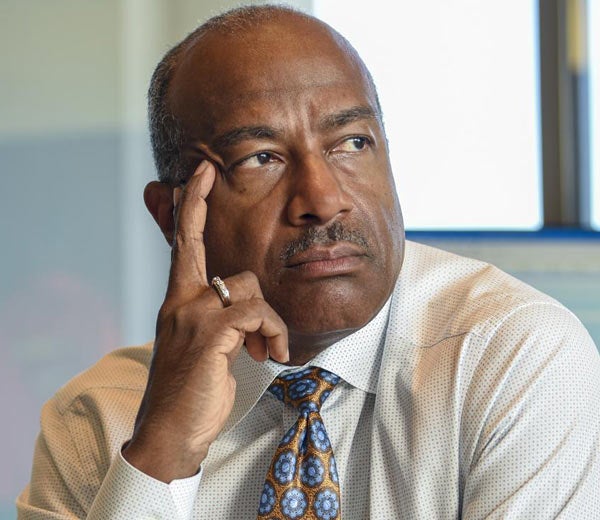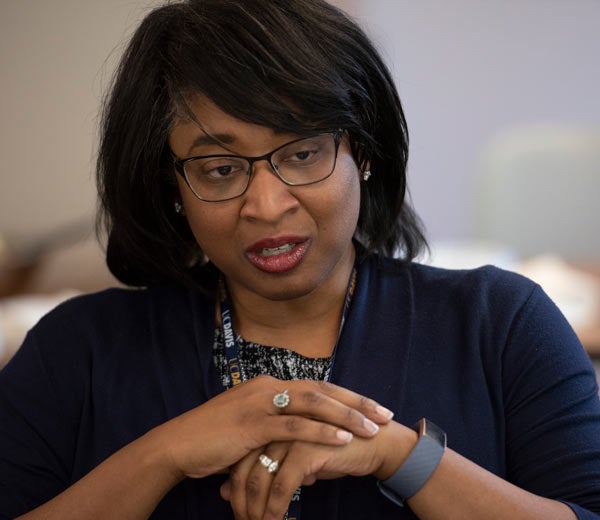Chancellor Gary S. May and Vice Chancellor Renetta Garrison Tull wrote the following response to an opinion column published Dec. 20 by The Wall Street Journal, “The University’s New Loyalty Oath,” by Professor Abigail Thompson. The Wall Street Journal published an abbreviated version of this response today (Dec. 26).

The University of California, Davis, has received recent attention regarding the use of Contributions to Diversity Statements as part of the application for tenure-track faculty hiring. In a Dec. 20 opinion piece, “The University’s New Loyalty Oath,” in The Wall Street Journal, Professor Abigail Thompson compares diversity statements to political tests, noting that “mandatory diversity statements can too easily become a test of political ideology and conformity.” We disagree strongly with this premise. It is inaccurate, at once illogical and rhetorically inflammatory, and reminiscent of historical attempts to blunt substantive actions aimed at desegregation and broadening participation.

The tripartite mission of the University of California is research, teaching and public service. Given the totality of our mission, serving our student body is a top priority, and contributions to diversity are as important as research and teaching in achieving that end. Indeed, not asking questions about a candidate’s readiness and potential for serving the diverse population of students in California, the most diverse state in the nation, would be negligent. In select faculty searches, UC Davis has placed emphasis on the Contributions to Diversity Statement, but the faculty application still includes the Curriculum Vitae, Cover Letter, Statement of Research Accomplishments, Statement of Teaching Accomplishments and Philosophy, a peer-review publication, and four to six letters of recommendation. Last year, search committees across eight colleges and schools following this protocol surfaced candidates who met and often exceeded expectations as teachers and researchers among those who provided impressive Contributions to Diversity Statements.
Fifty years ago, a faculty candidate could apply for a tenure-track position with a letter of application, but without additional statements. Early studies of tenure-track faculty hiring practices show that there are histories of hiring being based on perceived prestige of the applicant, alma mater and recommendations. Other studies conducted in the 1990s and early 2000s note that teaching statements were not frequently required. Teaching philosophies are now regularly requested and often required by search committees as teaching is considered to be a core skill set for the faculty member. Contributions to diversity are part of a skill set as well. Respecting and understanding students and colleagues from all backgrounds may come naturally to many. However, actively using inclusionary practices to engage students from different backgrounds is part of that skill set. Engaging colleagues and having the ability to both recognize and correct inequities is a skill. Diversity skills include respecting difference, collaboration, and communication to foster better attitudes and behavioral intentions toward diverse students and colleagues.
Thompson can be applauded for noting that many goals of diversity, equity and inclusion can be pursued in some of the following ways: “Professors can reach out to underrepresented communities at every level. We can enact family-friendly policies that help young faculty balance family life with jobs. We can encourage students from all backgrounds to explore and succeed in academic careers.” However, true commitment to diversity, equity and inclusion is active and not passive. A diversity, equity and inclusion “skill set” recognizes an appreciation of difference in backgrounds and cultures, perceptively analyzes how misunderstanding those differences can lead to inequities, and actively seeks solutions to remove barriers that would facilitate inclusion.
University of California policy states that diversity is “integral to the university’s achievement of excellence” and enhances “the ability of the university to accomplish its academic mission.” Within that premise is the acknowledgement that attention to the needs of our evolving and diverse student body necessitates assessment of faculty contributions to diversity in support of the broader mission of higher education.
Sincerely,
Renetta Garrison Tull
Vice Chancellor, Diversity, Equity and Inclusion
University of California, Davis
Gary S. May
Chancellor
University of California, Davis
Media Resources
Melissa Blouin, 530-752-2542, mlblouin@ucdavis.edu